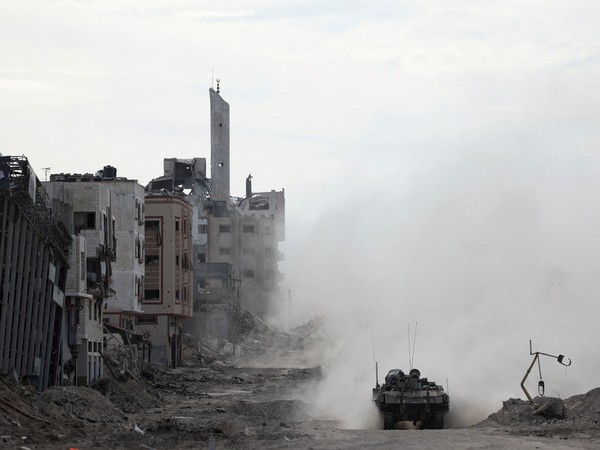
Israeli tank fire kills Reuters journalist in Lebanon
Dec 09, 2023
Beirut [Lebanon], December 9: Human rights groups call for war crimes investigation after Israeli tank fired at journalists in Lebanon.
Israeli tank shells fired in quick succession killed a Reuters journalist and injured six others as they filmed in Lebanon on 13 October, investigations by their employers have found.
Human rights groups called for a war crimes investigation into the attacks, after conducting their own independent investigations and reaching the same conclusion.
Issam Abdallah, a 37-year-old video journalist, was killed instantly by a first shell, the reports published on Thursday found. It also seriously injured the AFP photographer Christina Assi, 28, who had a leg amputated and is still in hospital.
A second weapon firing less than a minute later injured others in the group, who were travelling and working together, and destroyed a vehicle used by Al Jazeera journalists.
Evidence presented in the reports included expert analysis of munitions fragments, satellite images, the accounts of survivors and video recordings filmed by the group and other journalists before and during the attack.
"The evidence we now have, and have published today, shows that an Israeli tank crew killed our colleague Issam Abdallah," the Reuters editor-in-chief, Alessandra Galloni, said.
"We condemn Issam's killing. We call on Israel to explain how this could have happened and to hold to account those responsible for his death and the wounding of Christina Assi of the AFP, our colleagues Thaier Al-Sudani and Maher Nazeh, and the three other journalists."
The weapon that killed Abdallah was a 120mm shell, which is used by the Israeli military on its Merkava tanks, multiple weapons experts consulted by the different investigators found. A tail fin from the munition was found near his body.
Hezbollah is not known to have tanks and the Lebanese army's largest calibre tank round is 105mm, Reuters said. It was likely to have been fired from the south-east, near the Israeli village of Jordeikh, where Israeli tanks were operating, the investigations found.
International law forbids targeting journalists, and the group had chosen a spot for filming on an open hillside where they were clearly visible. They were all wearing blue helmets and flak jackets with "Press" markings, and had been in the same place for nearly an hour.
There was no militant activity in the immediate area, the reports said. Intense military surveillance in the border area means the group would have been clearly visible to commanders.
That the same group were hit twice in quick succession makes an accidental shooting unlikely, the weapons experts said.
"The strikes were deliberate and targeted," AFP said. "They arrived within 37 seconds of each other and just a few metres apart. The journalists were clearly identified as press, away from any military activity. The Israeli army has extensive aerial surveillance resources in the area."
Amnesty International and Human Rights Watch said the attacks should be investigated as possible war crimes, after carrying out their own investigation.
"Direct attacks on civilians and indiscriminate attacks are absolutely prohibited by international humanitarian law and can amount to war crimes," said AyaMajzoub, Amnesty International's deputy regional director for the Middle East and north Africa
"Those responsible for Issam Abdallah's unlawful killing and the injuring of six other journalists must be held accountable."
Israel's military and Hezbollah have traded fire across the border most days since the Israel-Hamas war began on 7 October. There have been two deadly attacks on journalists inside Lebanon in that time.
Source: Fijian Broadcasting Corporation









